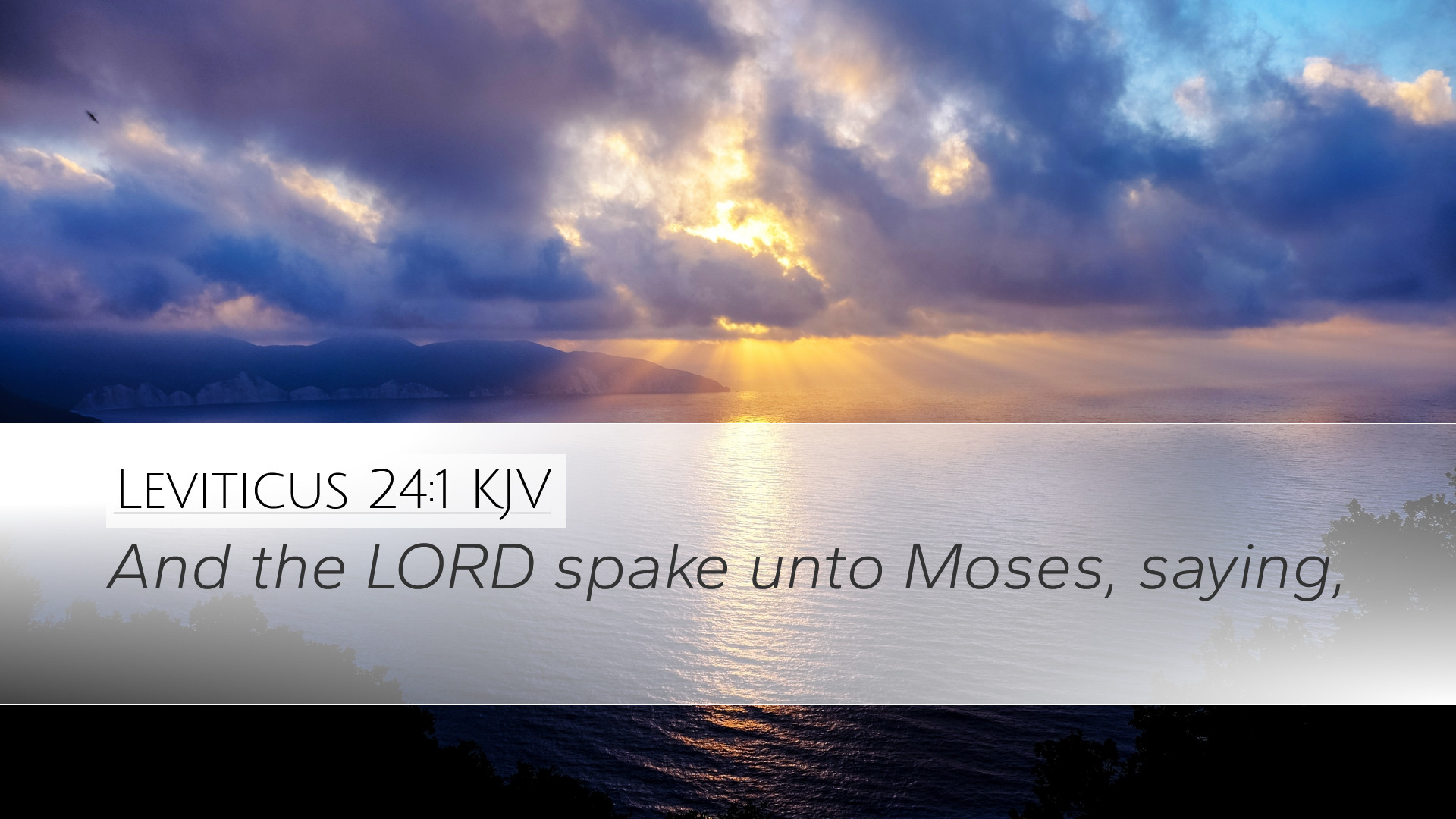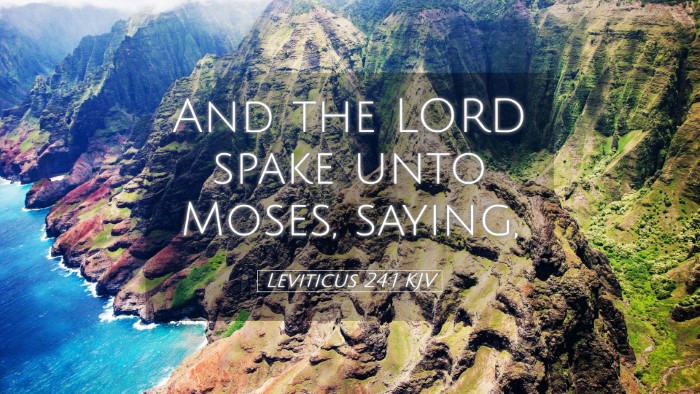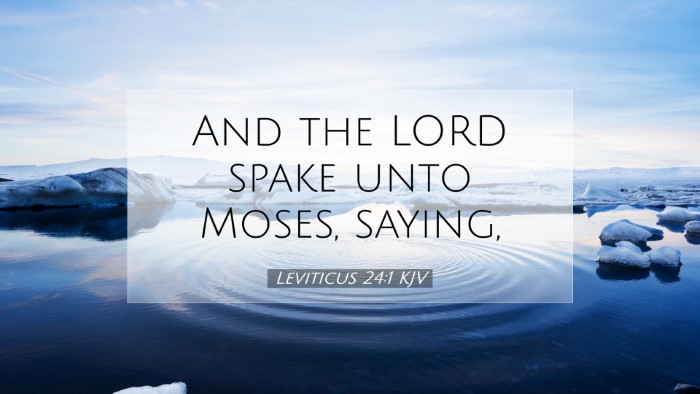Commentary on Leviticus 24:1
As we delve into Leviticus 24:1, which states, "And the LORD spake unto Moses, saying," we find a pivotal moment where God’s instructions concerning sacred practices are conveyed to His chosen people. This verse serves as an introduction to a series of divine regulations aimed at the instruction and preservation of holiness within the Israelite community.
Contextual Overview
The Book of Leviticus is fundamentally concerned with the principles of holiness, sacrifice, and covenant community with God. In this verse, we witness God speaking directly to Moses, reinforcing the theme of divine revelation and guidance.
Moses as the Mediator
Throughout the Torah, Moses is depicted as the mediator between God and the people of Israel. In the words of Matthew Henry, “Moses is the mouthpiece of God’s law; as he receives the commandments, he stands as the authority through which Jehovah communicates His will.” This highlights the centrality of Moses in relaying God’s instructions, showcasing his vital role in the covenant relationship.
The Importance of Divine Instruction
When God speaks, it commands utmost attention. Albert Barnes remarks, “The Lord’s communication emphasizes the necessity of obedience. Each directive carries with it not just instruction but a call to align one's life with the divine order.” Understanding this, we can see how the initial verse reveals the importance of obedience to God’s commands as a cornerstone of faithfulness.
Insights on the Following Verses
The verses that follow provide context for the divine instructions regarding the lampstand and the showbread. This serves to enrich our understanding of worship and the sacredness of community in Israelite life. Adam Clarke elaborates that "these elements symbolize God’s provision and presence which the community must attend to in their communal worship.”
The Role of the Lampstand
The lampstand represents divine light illuminating the way for Israel. Matthew Henry comments that it signifies “the love of God which dispels the darkness of ignorance and sin.” This imagery reaffirms the belief that God is the guiding light for His people.
The Significance of the Showbread
The showbread, placed continually before the Lord, symbolizes the sustenance and fellowship believers have with God. According to Albert Barnes, “It conveys God’s provision and the spiritual nourishment provided in covenant relationship." Here again, Moses' role becomes critical as he communicates the significance of such symbols to the people.
Theological Implications
These elements reveal core theological truths relevant to us today. They symbolize God’s ongoing presence and reliance, reinforcing the idea that worship is not just a ritual but an essential practice intertwining community life and personal devotion.
- Holiness and Community: The instructions God provides highlight the importance of maintaining holiness not just on an individual level, but as a community.
- Continual Worship: The showbread signifies the necessity of continual worship and remembrance of God’s faithfulness.
- The Role of the Mediator: Moses as a mediator underscores the need for intercession and the conveying of God’s message.
Contemporary Application
For modern-day readers, Matthew Henry notes that these ancient practices remind believers of their need to pursue God in worship continually: “As the Israelites were to have the lamp and showbread regularly in the sanctuary, so believers today must ensure that they are feeding on Christ and walking in His light.”
Challenges of Obedience
In our pursuit of holiness, much like Israel, we face the challenge of obedience. Adam Clarke exhorts that “Moses’ diligent communication of God’s commands serves as a stark reminder to every generation of the importance of adhering to the divine will amidst societal distractions.” This is timeless counsel for pastors and leaders today.
The Call to Worship
In this worship-oriented context, it is vital for congregations to remember that their worship should not be merely a formality but a heartfelt engagement with the living God. Albert Barnes encourages believers to “reflect on how your worship adores God’s presence and glory, just as Israel was to bless God’s everlasting faithfulness in their midst.”
Conclusion
Leviticus 24:1, though brief, encapsulates significant theological themes concerning the nature of worship, community, and obedience. By recognizing the role of Moses as a mediator and the elements of worship highlighted, readers can draw connections to their spiritual practices today. The emphasis on continual worship, proper community relationships, and fidelity to God's commandments convey a timeless call that resonates through the ages.
By studying this verse and engaging with its teachings, pastors, students, and scholars are equipped with insights that encourage a deeper understanding of their relationship with God, the significance of communal worship, and the ongoing relevance of biblical injunctions.


